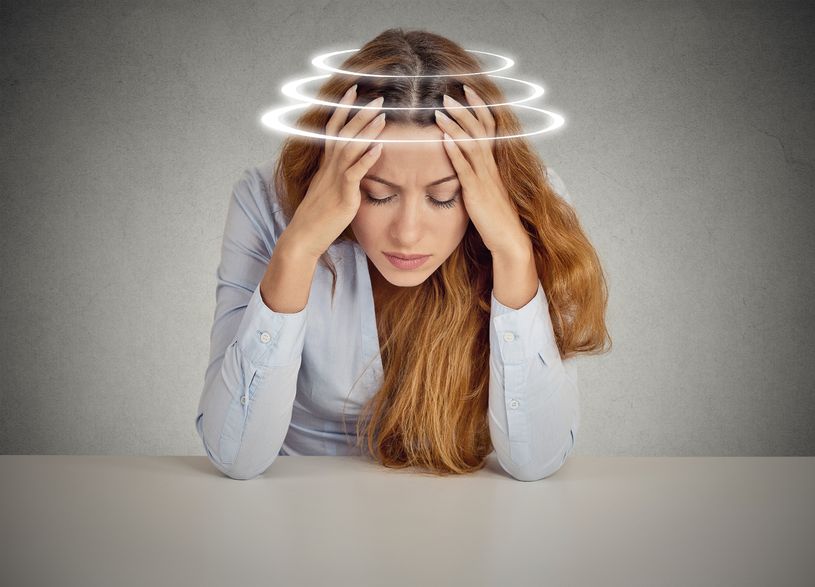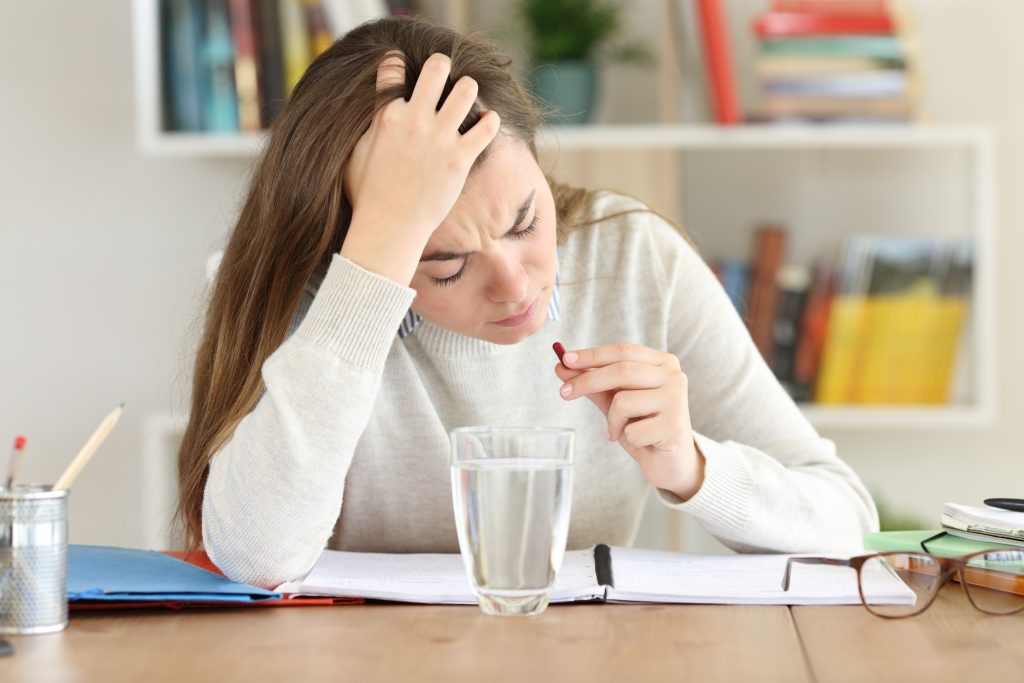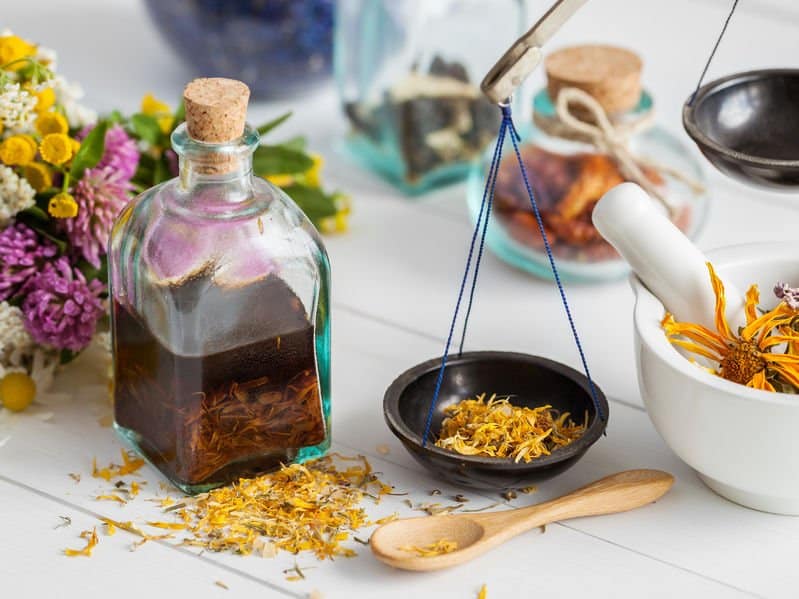Almost had a few close calls huh? If it catches you at the wrong place, a dizzy spell can be 100% fatal. Remember when we were kids with like a million different spinning games. We’d spin round and round until everyone was flat on their back from dizziness. Usually, the winner was the last man standing. That is what we call induced dizziness, oh how good we had it.
But as you grow up, the last thing you want is to be disoriented, especially if it hits you from nowhere. Unfortunately for all of us, statistics tell us that almost half the entire population of adults will experience dizziness once in a while. But what exactly is this phenomenon that makes you spin vigorously even when you’re standing still?
That’s what we’re here to find out. We’ll be looking at what dizziness is and what happens when it hits you. We’ll also look at the different causes and risk factors for the condition. And as always, we’ll wind up with a gander at the different types of prevention and treatments.
So, are you ready for Olivia’s ultimate guide to everything you need to know about dizziness? Good, coz we already started.
First Things First, What Is Dizziness?
Medical professionals describe dizziness as a sudden impairment in stability and spatial perception. But since the term dizzy is imprecise (in a way), it is used to describe a broad range of sensations that affect certain sensory organs. These feelings include being woozy, faint, unbalanced, unsteady, lightheaded, among others.
As such, the term dizziness can mean very different things to different people. That’s why it’s very common for even experienced health care givers to misdiagnose the real problem. Truth be told, dizziness is not a disease in itself, but rather a prominent symptom for various disorders.
For example, vertigo can cause severe feelings of dizziness, but those two are not the same thing. Vertigo is more characterized by a classic, spinning sensation like the room you are in is literally moving. True or real dizziness on the other hand feels more like a weakness or lightheaded feeling like you are about to faint. So while vertigo is usually caused by disturbances in the inner ear, lightheadedness will often be caused by decrease in blood supply to the brain.
Typically, the occasional dizzy spell is nothing to worry about since it rarely signal a life-threatening condition. However, frequent or constant dizziness will not only affect your day to day life, but chances are that it signals a serious underlying condition. Let’s delve right into some of the most common causes of dizziness, shall we?
So, What Causes Dizziness?

a) Low Blood Pressure
Lightheadedness, wooziness and frequent feelings of fainting are unbelievably common in people with low blood pressure. That’s because when blood pressure is too low, then there’s not enough oxygen and nutrients being delivered to the brain. This in turn affects the function and if the pressure gets even lower, then it’s common for the person to completely pass out.
Apart from just feeling dizzy, other symptoms associated with low blood pressure include weakness, sweating, shortness of breath, chest pain, nausea and vomiting. Low blood pressure could be as a direct result of a diseases such as anemia, dehydration, or side effects of certain medicines like beta blockers, nitroglycerin, diuretics and ACE inhibitors.
Also known as the silent killer, hypertension is extremely dangerous because it rarely shows any symptoms. Even with blood pressure readings clearly elevated, a person might only have minor symptoms such as headache, nausea or dizziness.
b) Diabetes
Another condition that has patients complaining about regular bouts of dizziness is diabetes. Whether hypoglycemic or hyperglycemic, you can expect dizziness to be an almost day to day experience. With hypoglycemia, the low blood sugar induces dizziness or lightheadedness because the brain does not get enough glucose to function. In the case of hyperglycemic patients, the high blood sugar could cause dehydration which in turn causes dizzy spells.
c) Endocrine Diseases
These include thyroid disease and Addison’s disease which occurs when adrenal glands can’t produce enough cortisol to satisfy the body’s needs. Cortisol is crucial as part of our fight or flight response. So if levels are low, then expected symptoms include fatigue, weakness, general malaise and dizziness.
d) Heart Conditions
Being an electrical pump, the entire conduction system in your body needs to work properly to stimulate your heart muscles. As such, any electrical disturbance could accelerate or slow the heartbeat substantially. Any of these two scenarios could result in inadequate blood supply to the brain. As a result, you could experience weakness and dizziness.
e) Pregnancy
That’s right, pregnant women will often complain of dizziness as one of the common symptoms. There are many (incorrect) theories by midwives worldwide, but the reason really is simple. See, the hormone levels in pregnant women is constantly rising, causing blood vessels to dilate. This in turn increases blood flow to the baby. However, it also results in lower blood pressure in the mom. This is the main reason why pregnant women have dizzy spells now and then. However, just to note that this may not always be the only cause. Dizziness will also often occur in women with underlying conditions such as varicose veins or anemia.
How To Prevent And Treat Dizziness

If you have chronic dizziness or are constantly feeling woozy, then that is a very clear indication of underlying health conditions that you doctor should look at. Of course, there’s a wide range of treatments starting with diagnosis of any diseases. But before we get to that, there are a few things you could do to prevent wooziness and protect yourself as well.
- First off, drink lots of water, observe a balanced diet, and make sure you’re getting enough sleep. You’d be surprised just how many dizzy spells are caused by dehydration, malnutrition, lack of certain vitamins, stress or even irregular sleeping patterns.
- If you feel a dizzy spell coming on, sit or lie down immediately until it passes, and then stand up slowly to help if the spell is caused by positional changes.
- If you suffer from a disease or condition where dizziness or passing out is part of the symptoms (or side effects of medication), then you absolutely have to make your home safer. This includes securing carpets and rugs to avoid slips, cushioning sharp edges and hard floors, using tub mats, railing and even a walking cane when you’re outside.
Treating Dizziness
Like I said earlier, most cases of dizziness resolve themselves without needing any treatment. That’s because the body usually adapts to the cause. If it’s chronic or relentless dizziness, then chances are that it’s a symptom of an underlying disease such as diabetes, blood pressure or heart disease.
Treating the underlying condition should see the dizzy spells disappear as well. However, that’s never stopped medical professionals and big pharmas from lining up an array of prescriptions and procedures. Some of them are really life savers, others are just plain exploitation.
Medical Treatments Of Dizziness
a) Prescription medication
There are several medication that help combat dizziness. These include antihistamines such as meclizine, and anticholinergics that all help reduce dizziness. Unfortunately, they only offer short term relief and could become counterproductive after a while.
Similarly, your doctor might prescribe water pills for people with Meniere’s disease and a low salt diet to reduce the severity and magnitude of dizzy spells. For dizzy spells caused by stress, you’ll get a prescription for anti-anxiety medications such as Valium, Xanax, and other benzodiazepines. Ironically, these drugs have unbelievable side effects like addiction – and drowsiness!!!
b) Surgery
If your dizziness is becoming a major hindrance in your life, then there are a few different procedures that doctors can perform. However, whether you qualify will largely depend on the cause. For example, a doctor may inject your inner ear with antibiotic gentamicin to balance things out if your vertigo is caused by inner ear issues. For more serious cases, doctors might perform a rare procedure called a labyrinthectomy where they open the ear canals and vestibules.
c) Therapy
There are several specific exercises that you could learn to help with balance which will help resolve the dizziness. One such technique is vestibular rehab that teaches patients some exercises that help improve less sensitive balance systems. Similarly, there’s also the Epley maneuver that resolves vertigo more quickly than if you simply waited for it to go away on its own. Used with essential oils, some of these maneuvers could really come in handy.
Can Essential Oils Help With Dizziness?
Some prescription medication for dizziness or vertigo don’t go well with many patients. Aside from ironically causing drowsiness, they turn counterproductive after a prolonged period of use. So if you actually think about it, people with chronic dizziness end up paying pharmaceutical companies to keep them drowsy. Anyway, enough doom and gloom…
If you combine the right therapy with essential oils, then you can begin your journey to real healing without having to deal with ironic, useless and redundant side effects. Over the years, these concentrated drops of natural goodness have gained wild popularity as alternative medicine giants.
You know how those passed out football players and boxers pop right back up in action after getting knocked out? That’s right, smelling salts, and ammonia pellets and all that stuff. The main aim of those substances is to excite the brain and heart to stimulate the body into action.
Some essential oils also have this effect when smelled, making them a safe and more natural way to keep your brain active. That’s just the tip of the iceberg when it comes to helping get rid of dizzy spells. Essential oils have the power to promote clarity, enhance the respiratory system, increase oxygen levels in the brain, eliminate all signs of nausea and clear other symptoms associated with dizziness.
Combined with all the known benefits of aromatherapy, everyone should consider turning essential oil use into a lifestyle. Here are some essential oils that will really come in handy for dizziness, loss of balance, vertigo and spatial impairment.
5 Best Essential Oils For Dizziness

1. Clary Sage
How’s that for clarity huh? As the name suggests, there’s nothing like a little clary sage to help pull your mind from a bog and into crystal clear lucidity. What makes this particular essential oil incredibly potent is some of the active components found inside it. They make it one of the best options for dizziness caused by anything to do with the nervous system going haywire. These compounds act as natural sedatives while the potent scent calms hyperactive nervous function. In turn, it helps promote normal cognitive processes therefore immediately stopping any dizzy spells dead in their tracks and giving you a much needed boost in balance.
2. Basil
Okay, so what if the only time you think about Basil is when you’re cooking up a meal. Lucky for you, this oil doesn’t discriminate when it comes to healing. Basil essential oil boasts of potent antioxidant and anti-inflammatory elements that not only improve your respiratory function, but also the circulatory system as well. This provides a much need oxygen and nutrient boost straight to the brain and other organs. Of course, more oxygen to the brain means better function which in turn translates to fewer instances of dizziness. And if you’re also stressed out, the scent makes for great aromatherapeutic relief.
3. Peppermint
Remember those smelling salts I was talking about? Here’s an oil whose whiff is enough to wake someone from the dead. As we speak, peppermint essential oil is already a popular treatment for nausea, headache, dizziness, motion sickness and even vertigo. This can be largely attributed to peppermint’s anti-inflammatory, stimulating and rejuvenating properties that not only help ground the inner ear, but also relieve any nervous tension. Used well, peppermint essential oil will help open up the circulatory system, boost oxygen intake to the brain and bloodstream, and even clear nausea and digestive issues all in one fell swoop. If you suffer from chronic dizziness, then you’ll definitely benefit from this here triple threat essential oil.
4. Frankincense
That’s right; there’s a reason that even Frankinstein’s monster preferred to use this oil of all essential oils. That’s because Frankincense has some hidden qualities that could bring a monster to life, and keep humans from losing consciousness. It doesn’t come as a surprise that this super pungent ethereal extract has been used by many civilizations for centuries. Some of its medicinal values make it great for healing and stimulating the right part of the body. Which is why ancient tribes used it to enhance their spirituality. Similarly, Frankincense oil helps control anxiety and stress – some of the common causes of dizzy spells.
5. Lavender
Here’s a special oil that smells so damn good (Bulgarian Lavender anyone?) it would make you forget you’re feeling dizzy in the first place. Sure, technically some sweet smells here and there shouldn’t be able to clear dizziness, but it does. See, some of the primary causes of dizziness are actually stress, fatigue, and sleeplessness. Try staying up for a few days straight and chances are that your balance and coordination are going to get screwed up. Lavender has a super ability to relax the mind, ease stress and make for one hell of a good night. Once you’re well rested and free from stress, then dizzy spells should be a thing of the past.
Top 4 Essential Oil Recipes For Dizziness

Recipe 1: 6 Drop Dizzy Duo Blend
Ingredients:
- 4 drops Peppermint
- 2 drops Ginger
- Tablespoon of fractionated coconut oil
Method:
Typically, dizziness and nausea go hand in hand – that’s why we called this one the dizzy duo blend. Not only is your head spinning, but now your stomach is also acting up too? For this one, peppermint had to take the lead for its anti-inflammatory, stimulating and rejuvenating properties.
If you suffer from chronic dizziness, then you’ll definitely benefit from this here essential oil blend. Start by assembling your oils and then mixing up the ingredients as instructed above. Once everything is all mixed in, apply the blend to the temple, base of the skull and behind the ears to keep both dizziness and nausea away.
Recipe 2: Roller Bottle Blend for Dizzy Spells
Ingredients:
- 5 drops Clary Sage
- 4 drops Frankincense
- 3 drops Rose
- 2 drops Eucalyptus
- An ounce of jojoba oil
- Small bottle (preferable roller)
Method:
Here’s another topical application blend for dizziness that should essentially (pun intended) stick with you all day long. For this one, I went with plenty of clary sage because it’s one of the best essential oil for dizziness as it has natural sedatives plus the potent scent calms hyperactive nervous function. Together with Eucalyptus and the other oils, it helps promote normal cognitive processes therefore immediately stopping any dizzy spells dead in their tracks and giving you a much needed boost in balance. To make use of this recipe, drop all the essential oils in the small bottle, top it off with the jojoba oil and shake well. Roll the blend behind the ears, temples, and behind the neck for relief from dizziness.
Recipe 3: Anti-Dizziness Diffuser Formula

Ingredients:
- 8 drops Basil
- 6 drops Tangerine
- 4 drops Lavender
- Diffuser
Method:
Like I always say, there’s never a moment where you can’t use your diffuser. Whether you’re at work or at home, whether it’s for a cold or full out vertigo – it doesn’t matter. If you’ve got the diffuser, I’ve got the oils. For this one, you want a generous amount of basil essential oil for its potent antioxidant and anti-inflammatory elements that not only improve your respiratory function, but the circulatory system as well. This provides a much need oxygen and nutrient boost straight to the brain and other organs. To make the formula, mix all the oils in a glass bottle and then add the mixture in your diffuser for continued relief from dizziness.
Recipe 4: Quick Inhaler for Dizzy Spells
Ingredients:
- 5 drops Frankincense
- 5 drops Peppermint
- 3 drops Lavender
- Wick inhaler
Method:
If you’re looking to assimilate essential oils into your body, there’s no quicker, or more convenient way to do it than with an inhaler. Lucky for you, Aromatherapy Inhalers are quite cheap and easy to use. For chronic dizziness, you’ll want to combine all the essential oils in a small, non-reactive bowl. Mix them all up and then remove the wick from your inhaler. Dip the wick in the mixture of essential oils and let it soak all the oils up before replacing it in the inhaler. Take deep breaths of the inhaler regularly, especially when you feel a dizzy spell coming on. The stimulating effect should be enough to keep your mid sharp and active.
The Bottom Line
There you have it guys, another segment neatly wrapped up. Now that all you would ever need to know about dizziness is at the tip of your fingers, preventing and treating bouts of dizziness and balance impairment should be that much easier now.
But I have to stress on one thing here – if you’re dealing with constant, repetitive or recurrent dizzy spells, then make sure you visit a doctor because you might be facing an underlying, undiagnosed disease. But if your dizziness is cause by unavoidable circumstances (such as side effects for medications and necessary treatments), then adding some essential oils into the mix could help even things out.





